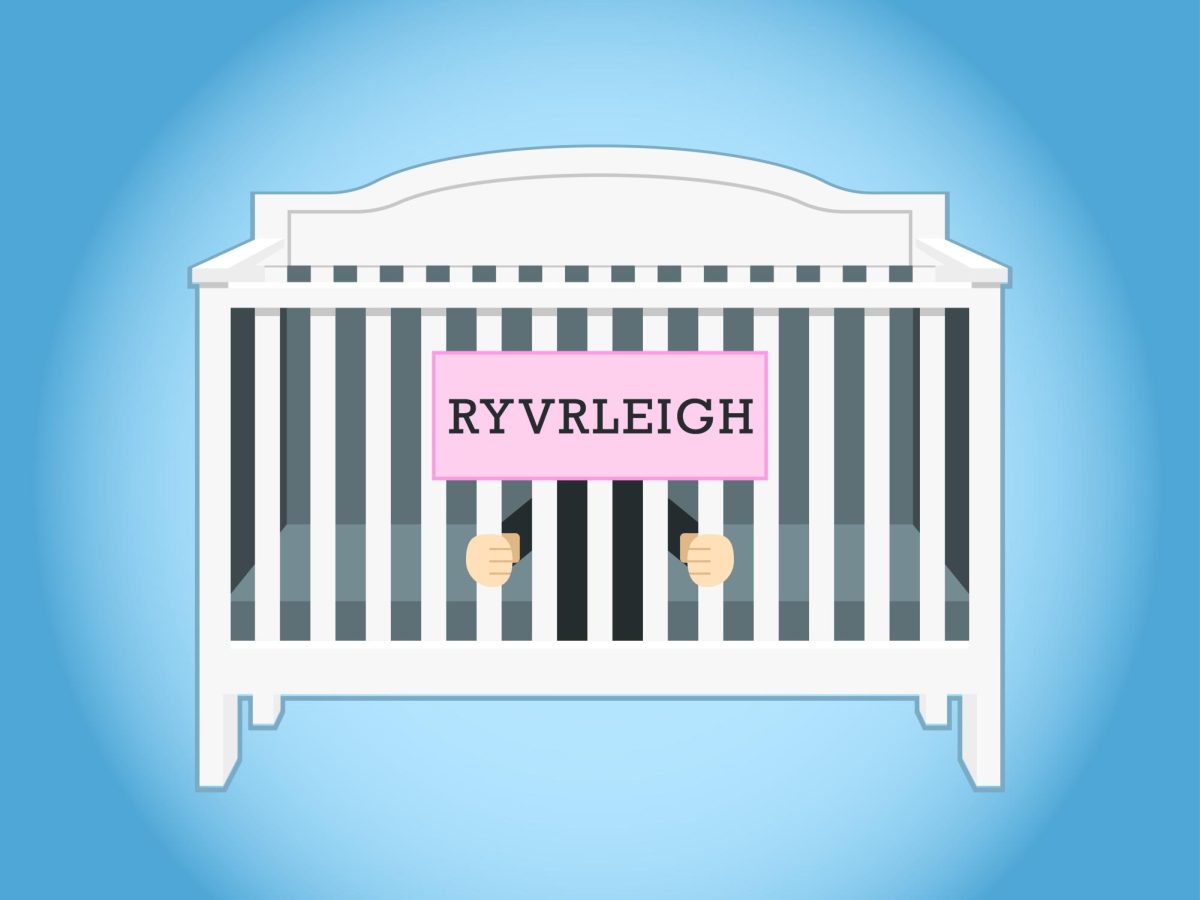“Ahonesty,” “Synturey,” “Hayzleigh” and “Justus.”
What do these four names have in common? They’re all just a sample of real names posted to r/Tragedeigh, a Subreddit dedicated to the unfortunate names given unique misspellings that people come across in the wild.
Submissions to the Subreddit would have you believing that these (mostly) millennial parents were naming their third precious goldendoodle puppy.
No, the names “Apiffany” or “Ryvrleigh” you saw were actually bestowed upon a human baby-a baby who eventually will grow up to be an adult member of society.
A child’s name is often their first introduction to how they will be perceived in society, with lasting effects that go beyond trends and aesthetics. Influencing their academics, career, social and romantic lives.
In a 2010 study, San Diego State professor of psychology Jean Twenge examined the names of over 325 million American babies born between 1880 and 2007. Twenge found that common names have seen a decrease in popularity since the 1950s. The study attributed this shift to a growing trend towards an individualistic culture.
But is there a deeper motivation behind this trend? Some younger people claim that their parents treated them like possessions and try to counter this by encouraging authenticity.
Yet, giving your child a “tragedeigh” name is inherently selfish.
By indulging your own aesthetics or pop culture preferences (looking at you, parents who have named their children after Twilight or Game of Thrones Characters), you’re doing the opposite of what you claim: imposing your tastes on your child, rather than letting them define themselves.
Imagine walking into a board meeting and shaking hands with the CEO who introduces themselves as “Dyamynd.”
Now, it’s not that these names themselves should be frowned upon, per se.
It’s the idea that your child needs to be the most special, most wild and most individualistic child amongst the other five year old plebeians in their kindergarten class.
What’s the most punk rock, stick-it-to-the-man thing you can do as a parent? Give your child a name even they can’t spell.
It’s essential to clarify that this critique isn’t aimed at traditional cultural names or those from marginalized communities, which often face unjust ridicule in white-majority communities. Names with cultural significance deserve recognition and respect, as they carry heritage and identity-elements that actually contribute to individuality.
Beyond this, “tragedeigh” names reveal darker societal trends. Celebrity culture, which has become more aspirational due to influencers, promotes the idea of unattainable uniqueness.
TikTok influencer Nara Smith named her son “Slim Easy Smith,” while Elon Musk and Grimes named their first son “X Æ A-Xii.”
For the wealthy or famous, these unique names come without consequences and can even help the child’s “brand” as they grow up into whatever nepo-baby career path they choose. But for regular kids, the repercussions of these names are real.
Celebrity and influencer culture create a word where every aspect of a person, including their child’s name, factors into their lifestyle brand.
Ultimately, a child’s uniqueness doesn’t lie in their name. Individuality is a culmination of a child’s discovery of the world around them and their own values and interests. Encouraging children to express themselves beyond the superficiality of a name allows them to stand out without the burden of a tradgedeigh.
A name is merely a label; it’s a child’s passions and actions that define who they are as an individual.








